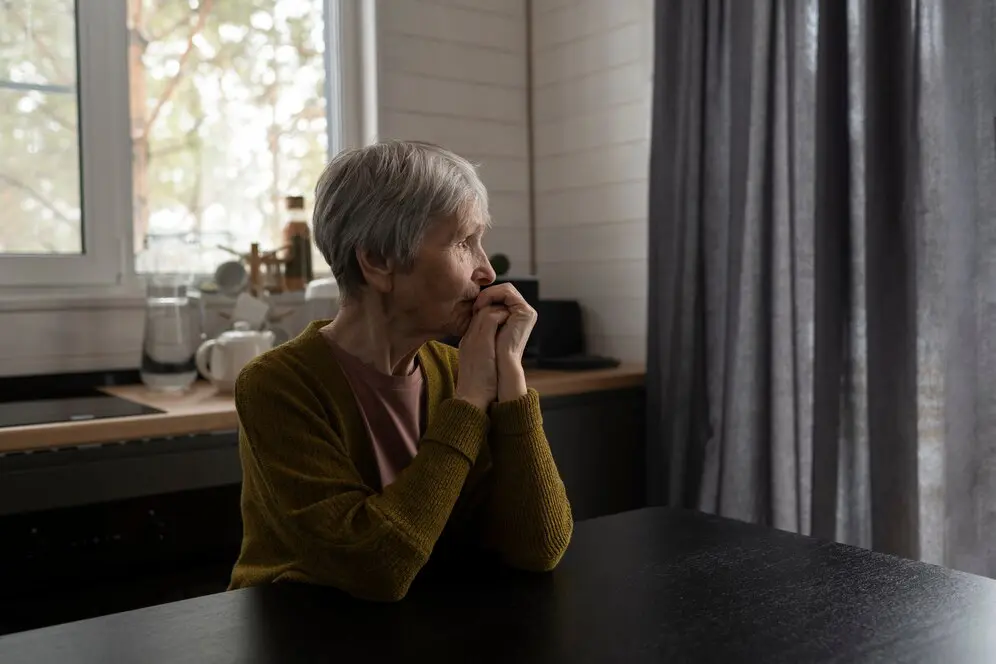
Elder abuse is a pervasive and deeply concerning issue that can manifest in various forms, often leaving victims silent and isolated.
While physical abuse and neglect may be more overt, emotional elder abuse can be insidious, leaving scars that are not easily visible.
Recognizing the signs of emotional elder abuse is crucial for identifying and addressing this form of mistreatment that affects the mental and emotional well-being of older individuals.
Pinpointing The Signs Of Emotional Elder Abuse

According to a study conducted by the World Health Organization 1 in 6 people experience the darkness of seclusion and desolation within the community. The rates of abuse by older people have gone on to increase manifold during the COVID-19 pandemic.
Abuse of elderly people reaches the extent of physical injuries and also long-term psychological peripheries. The global population is all set to double, that is, from 900 million in the year 2015 to that of 2 billion by the year 2050.
Why Does Emotional Elder Abuse Happen?
The elderly people or the families are facing these types of consequences. Therefore, one has to say that the stakeholders of society have to try and reach a consensus on the points that trigger elderly abuse.
So, let’s try to understand the subject here to get a better idea of things.
Dependency
In some cases, elderly individuals become dependent on the posterior generation and how proactive they remain physically. Such dependence can lead to fanning the deluge of physical and psychological torture and abuse.
In the most prevalent cases, where the sons and the daughter are dependent on the elderly parent for the shelter, the changes grow to quite an extent.
Stress
The rising stress germinating from increasing demands and depleting resources can contribute to growing abuses. This stress can not be that swift, but it torments an individual heavily. It may contribute to increasing emotional elderly abuse.
If the earning member of the family remains stressed, the elderly people, who are heavily dependent on their sons and daughters, may find themselves in utter destitution.
Alcoholism
One of the major reasons that triggers stress is alcoholism. Addiction can often lead to psychological, physical, and emotional elderly abuse. The study by Charmaine Spencers from Simon Frazer University found that in Canada, alcoholism rates have severely increased. Moreover, the problem with gambling has also made the lives of the elderly a veritable hell on earth.
Verbal Abuse
One of the most apparent signs of emotional elder abuse is verbal mistreatment. This can include name-calling, insults, yelling, and demeaning language. Victims may be subject to constant criticism, harsh judgments, or ridiculing comments, leading to a deterioration of their self-esteem and overall mental health.
In some cases, the abuser may use manipulative language to control or coerce the older individual. This could involve gaslighting—making the victim doubt their perceptions or memories—or employing threats to create a climate of fear and compliance.
Isolation And Withdrawal
Emotionally abusive individuals often use isolation as a tactic to gain control over the elderly person. They may intentionally cut off the older individual from friends, family, or support networks, leaving them socially isolated and more vulnerable to mistreatment.
This isolation can exacerbate feelings of loneliness, depression, and helplessness. Victims may withdraw from social activities, become hesitant to speak openly, or display noticeable changes in their behavior.
Recognizing these signs requires attentiveness to shifts in an older person’s social patterns and communication. If you or a loved one have experienced abuse in an assisted living facility, contact a Seattle nursing home abuse attorney.
Intimidation And Control
Emotional elder abuse can also manifest through intimidation and control tactics. Perpetrators may exert power by instilling fear in the older person, making them feel helpless or dependent. This can include threatening gestures, aggressive behavior, or controlling access to resources such as finances, medications, or personal belongings.
Victims of intimidation may become visibly anxious, fearful, or overly submissive. Recognizing these signs requires a nuanced understanding of the power dynamics within the relationship and the behavioral changes that may result from ongoing intimidation.
Unexplained Behavioral Changes

Emotional abuse often leaves a lasting impact on an older person’s mental well-being. Paying attention to unexplained behavioral changes is crucial in identifying potential signs of mistreatment. Victims may exhibit symptoms of depression, anxiety, or uncharacteristic mood swings. Changes in sleeping patterns, appetite, or overall demeanor can also indicate emotional distress.
It is essential to approach these changes with empathy and sensitivity, recognizing that there may be underlying factors contributing to the shifts in behavior. While financial exploitation is typically associated with economic abuse, it can also have profound emotional repercussions. Unscrupulous individuals may manipulate or deceive older adults to gain access to their finances, leading to feelings of betrayal, stress, and anxiety.
Victims may express concerns about missing money, unauthorized transactions, or unusual changes to their financial accounts. Identifying signs of financial exploitation requires a careful examination of an older person’s financial records and open communication about their financial experiences.
Lack Of Personal Agency
Emotionally abused older individuals often feel a loss of personal agency and control over their lives. They may express a sense of hopelessness, helplessness, or resignation. Recognizing this subtle erosion of independence requires paying attention to expressions of self-doubt, passivity, or a diminished sense of autonomy.
Emotional elder abuse is a deeply distressing form of mistreatment that can go unnoticed for extended periods. Elders could end up with injuries or emotional scars during the most fragile periods of their lives. Recognizing the signs requires attentiveness, empathy, and a commitment to understanding the often subtle changes in an older person’s behavior and demeanor.
By acknowledging emotional elder abuse and taking proactive steps to support those affected, we can contribute to creating a society that values and protects the well-being of older individuals.
Through open communication, advocacy, and a collective commitment to ending elder abuse, we can work towards fostering environments of respect, empathy, and dignity for our older community members.
Read Also:












